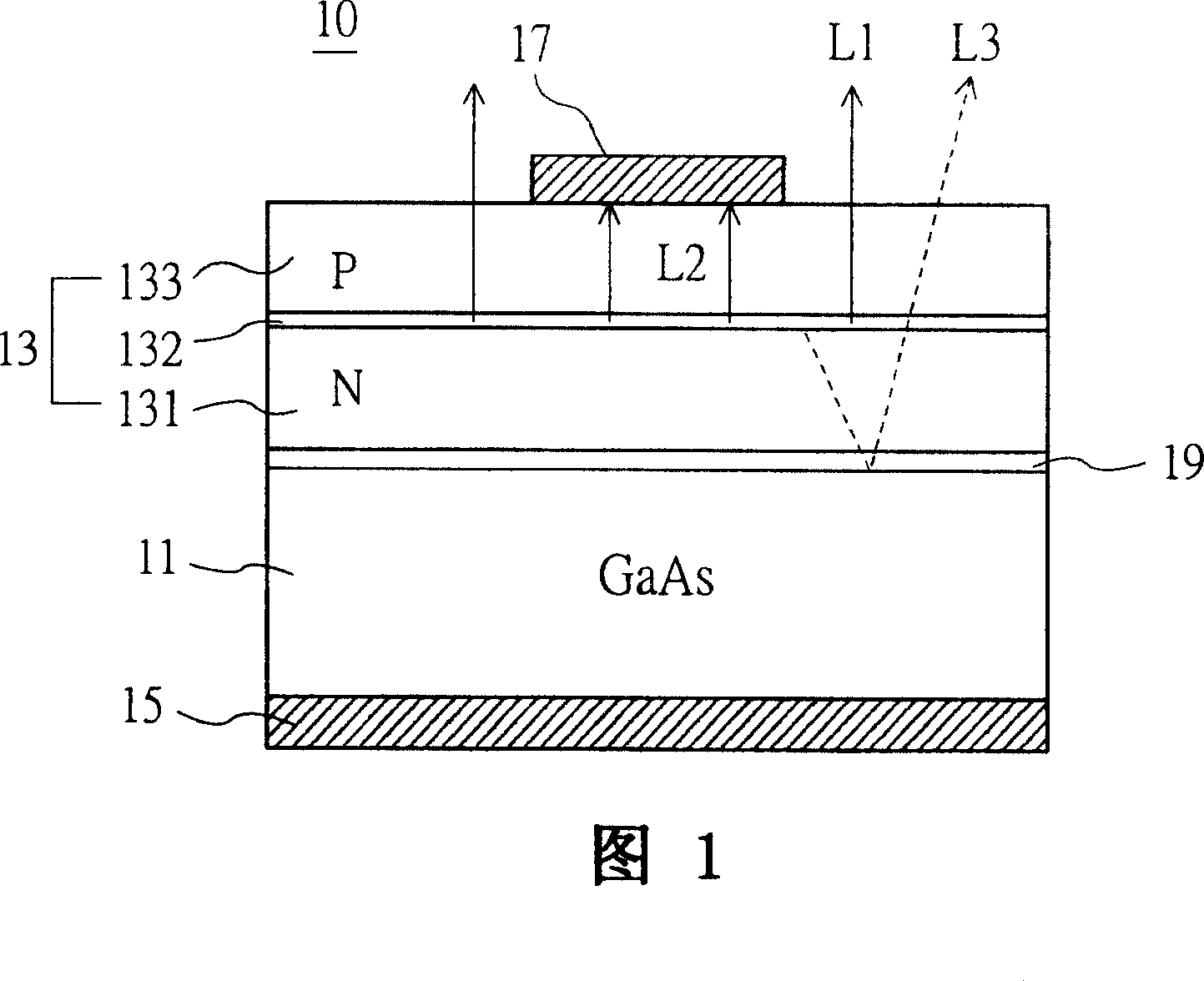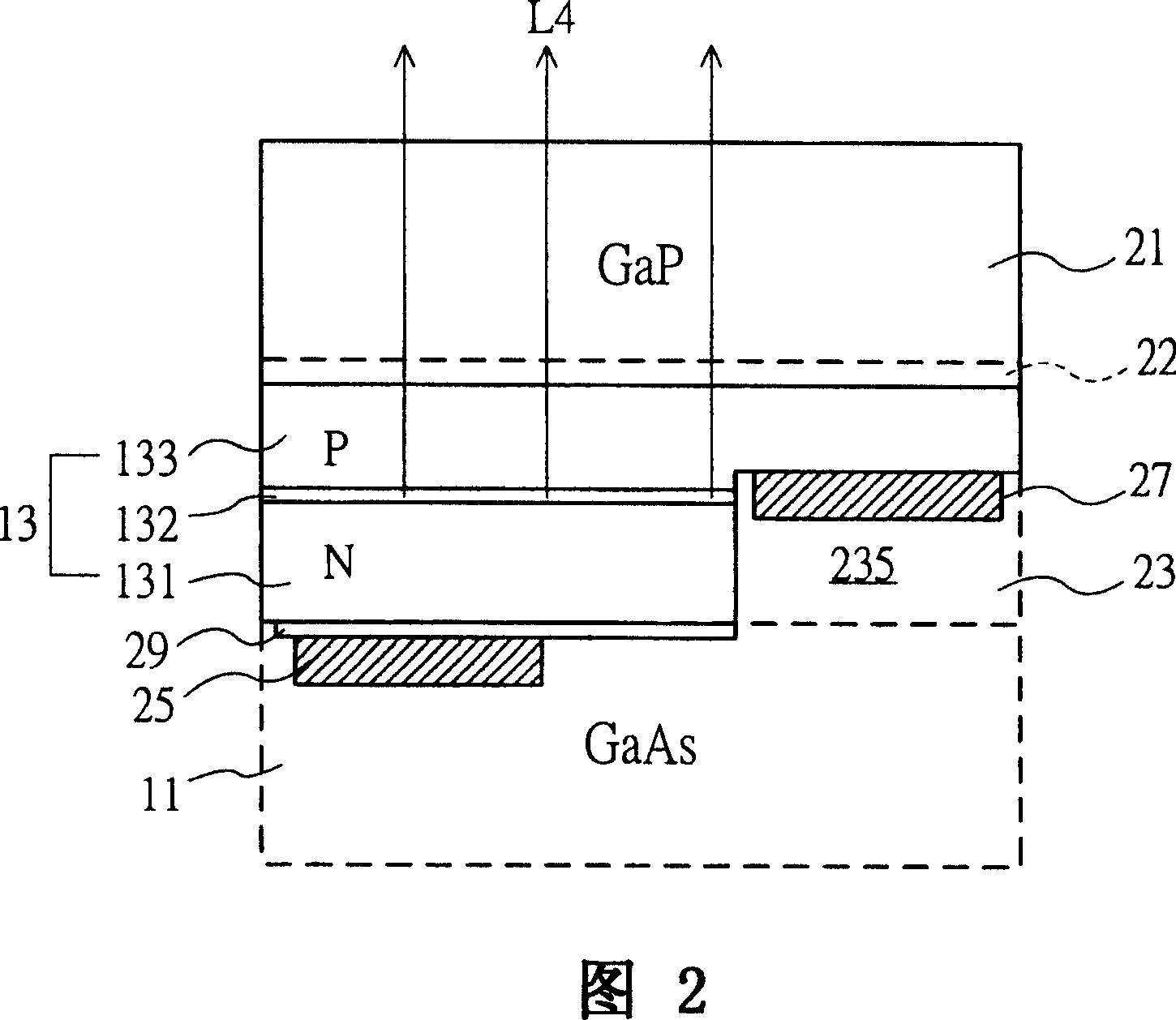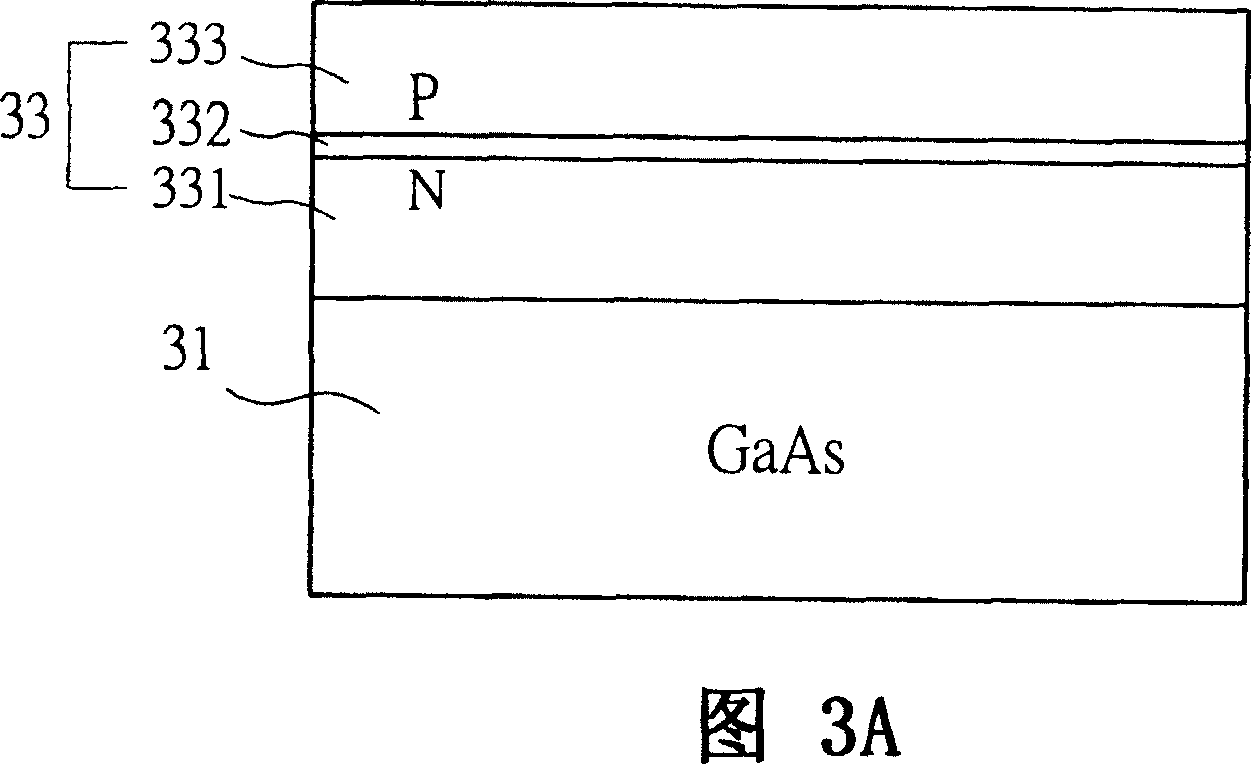LED
A technology of light-emitting diodes and diodes, applied in the direction of electrical components, circuits, semiconductor devices, etc., can solve the problems of loss of light-emitting area, difficulty in manufacturing, and not in the same horizontal position
- Summary
- Abstract
- Description
- Claims
- Application Information
AI Technical Summary
Problems solved by technology
Method used
Image
Examples
Embodiment Construction
[0071] Please refer to FIG. 3A to FIG. 3C , which are structural cross-sectional views of a preferred embodiment of the light-emitting diode of the present invention in each manufacturing step; as shown in the figure, the manufacturing of the present invention mainly includes the following steps:
[0072] First, a semiconductor substrate 31 is provided, such as a GaAs substrate (light-absorbing substrate), and a first material layer 331 (such as an N-type or P-type cladding layer), a light-emitting layer 332 and a second material layer are sequentially grown on the upper surface of the GaAs substrate 31. The material layer 333 (such as a P-type or N-type cladding layer), so as to form a quaternary epitaxial layer 33, as shown in FIG. 3A.
[0073] Wherein, the light-emitting layer 332 can be a PN interface, and can be optionally made of a ternary or quaternary compound, such as aluminum gallium arsenide (AlGaAs), aluminum gallium indium phosphide (AlGaInP) or aluminum gallium ph...
PUM
 Login to View More
Login to View More Abstract
Description
Claims
Application Information
 Login to View More
Login to View More - R&D
- Intellectual Property
- Life Sciences
- Materials
- Tech Scout
- Unparalleled Data Quality
- Higher Quality Content
- 60% Fewer Hallucinations
Browse by: Latest US Patents, China's latest patents, Technical Efficacy Thesaurus, Application Domain, Technology Topic, Popular Technical Reports.
© 2025 PatSnap. All rights reserved.Legal|Privacy policy|Modern Slavery Act Transparency Statement|Sitemap|About US| Contact US: help@patsnap.com



